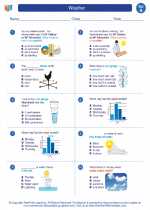What is Excretion?
Excretion is the process by which waste products and harmful substances are removed from the body.Organs Involved in Excretion
- Kidneys: Filter waste products from the blood and excrete them as urine.
- Liver: Processes and removes toxins from the blood, which are then excreted as bile or converted into water-soluble compounds for excretion by the kidneys.
- Intestines: Eliminate solid waste products from the body in the form of feces.
- Lungs: Remove carbon dioxide and other gases from the body through exhalation.
- Skin: Excretes small amounts of waste products through sweat.
Importance of Excretion
Excretion is important for maintaining the body's internal balance by eliminating waste products and toxins that can be harmful if they build up in the body.Process of Excretion
- Filtration: In the kidneys, blood is filtered to remove waste products and excess substances.
- Reabsorption: Useful substances such as water, glucose, and amino acids are reabsorbed back into the blood from the kidney tubules.
- Secretion: Additional waste products and substances are actively transported into the urine in the kidneys.
- Elimination: The urine is then transported to the bladder and eliminated from the body through urination.
Disorders Related to Excretion
- Kidney Stones: Formation of hard deposits in the kidneys, which can cause pain and block the flow of urine.
- Urinary Tract Infections: Infections in the urinary system that can cause discomfort and lead to complications if not treated.
- Liver Disease: Conditions that affect the liver's ability to remove toxins from the body, leading to a build-up of harmful substances.
- Respiratory Disorders: Conditions such as asthma or chronic obstructive pulmonary disease (COPD) can affect the ability of the lungs to excrete carbon dioxide effectively.
◂Science Worksheets and Study Guides First Grade. Weather
Study Guide Weather
Weather  Activity Lesson
Activity Lesson Weather
Weather  Worksheet/Answer key
Worksheet/Answer key Weather
Weather  Worksheet/Answer key
Worksheet/Answer key Weather
Weather  Worksheet/Answer key
Worksheet/Answer key Weather
Weather  Worksheet/Answer key
Worksheet/Answer key Weather
Weather  Vocabulary/Answer key
Vocabulary/Answer key Weather
Weather  Vocabulary/Answer key
Vocabulary/Answer key Weather
Weather 

 Activity Lesson
Activity Lesson
 Worksheet/Answer key
Worksheet/Answer key
 Worksheet/Answer key
Worksheet/Answer key
 Worksheet/Answer key
Worksheet/Answer key
 Worksheet/Answer key
Worksheet/Answer key
 Vocabulary/Answer key
Vocabulary/Answer key
 Vocabulary/Answer key
Vocabulary/Answer key

The resources above cover the following skills:
Earth Systems Science
Earth's materials can be compared and classified based on their properties. Students can:
Identify and represent similarities and differences such as the texture, size, color, and shape of various materials on Earth